Creation is a Personal Thing (And So Is Your Grant) with Quita Sullivan of NEFA
From the Ground Up Episode #9
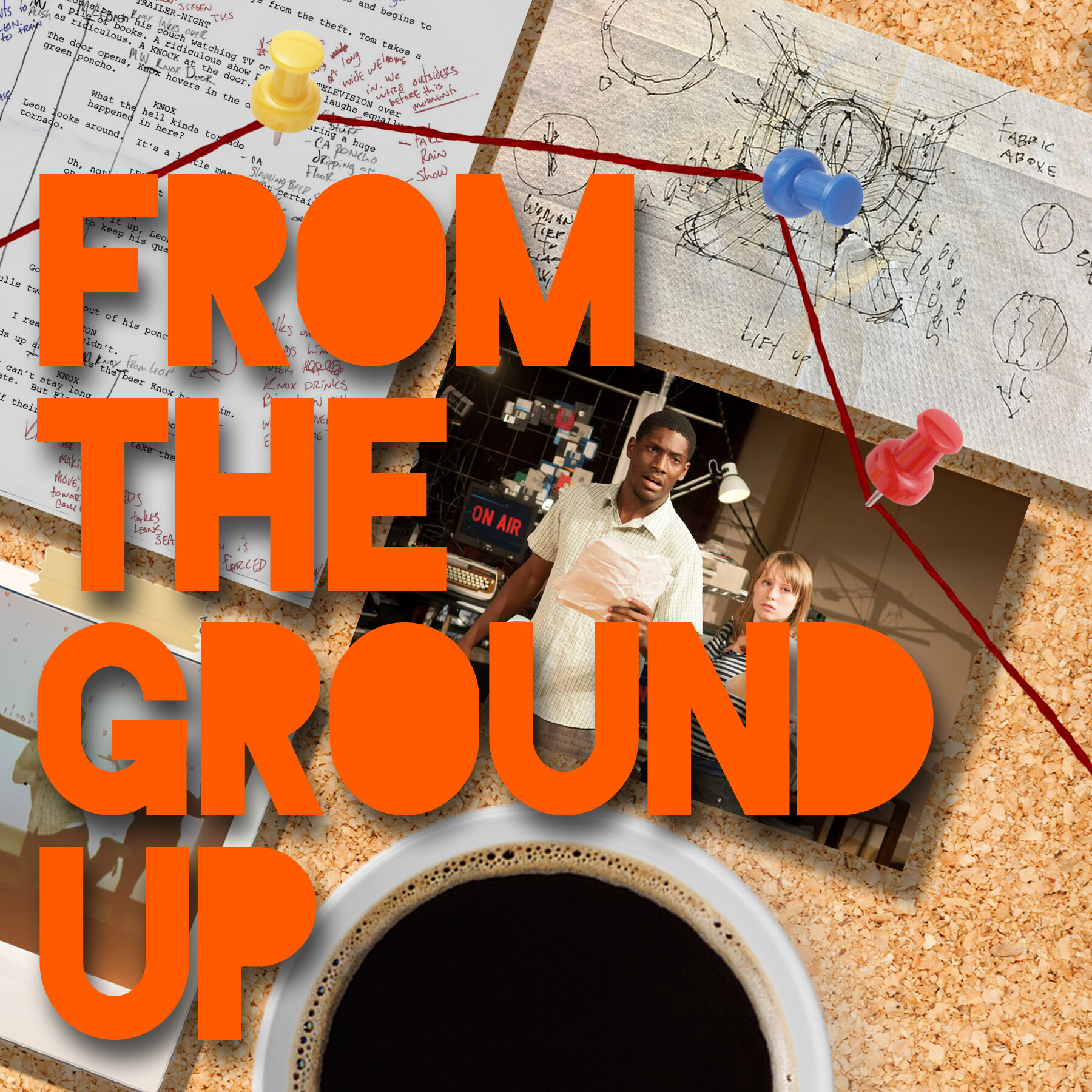
The New England Foundation for the Arts understands better than most the ensemble-based process. Quita Sullivan, Program Director for the National Theater Project, describes with great transparency the best practices for those interested in applying—as well as how these grants provide support and sustainability. This recording was made 17 May 2018.
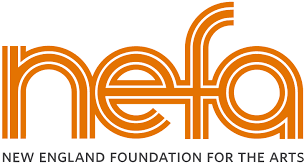
For more information: https://www.nefa.org/news/2019-national-theater-project-advisors
Jeffrey Mosser: From The Ground Up is supported by HowlRound, a free and open platform for theatremakers worldwide. It's available on iTunes, Google Play and HowlRound.com.
Dear artists, welcome again to From The Ground Up. I'm your host, Jeffrey Mosser. Thank you again for joining me today. We've had a few episodes where NEFA has come up and that's the New England Foundation for the Arts. In particular, Teada and Junebug have spoken about it and talked about some of the grants and the funding that they've received from them. I thought the easiest thing to do would be just to reach out and talk to somebody there, to talk about how we can sustain our ensemble based work to the people who are looking to sustain ensemble based work. I had the pleasure to speak with Quita Sullivan who is Program Director of Theatre at the New England Foundation for the Arts and some of my favorite parts of this conversation include the idea of a granting organization as a thought partner. A phrase that I hadn't thought about in this context, but the idea of an organization being someone as a resource, as a partner in your work and not just someone who is holding a big bag of money over you, feels a whole lot more welcoming. Quita also opens our eyes a bit wider to the greater field of theatre. How do ensembles make it stronger? Why should ensembles tour and how can we get better in equity with our grantmaking? Alright, listen up.
***
Quita Sullivan: This is Quita.
Jeffrey: Hi Quita, this is Jeff Mosser. How are you?
Quita: I'm good.
Jeffrey: Good. What is driving this interview is, I started as an ensemble based theatremaker myself and have ran a company in Boston for a brief period and then I started grad school and part of what has been so curious and exciting to me about theatre making, is that collectively created process. And to me, it's about how do you make the art with that sort of ensemble sensibility. But also, how do you pay for the art? How can we better sustain these ensembles and make sure that it isn't just an exhausting process before them? For audiences who might not know what NEFA is, could you give us the elevator pitch of what NEFA might be or what NEFA is?
Quita: Sure. NEFA is a regional arts organization. Our goal is to enrich the cultural landscape in New England and the nation. We do that by investing in artists and communities and fostering equitable access to the arts. We work in partnership with National Endowment for the Arts, a New England state arts agencies and private foundations. We work in areas of grantmaking convenings and professional development. We do creative economy research. We have an online directory of New England's cultural assets and that's called Creative Ground and the grantmaking is within New England and then we have national programs that have an international program. And then we have several local programs and I'm the director of the National Theater Project and the Program Director for Theatre.
Jeffrey: Right. Yes and this position is sort of, I guess within the last few years, relatively new. Yes? Correct?
Quita: Yes. This grant wasn't created until 2010 but it's modeled on our older program, the National Dance Project. The National Dance Project is over twenty years old and that has funded dance across the country nationally, since it was created. So in 2010 when we were approached by the Andrew W. Mellon Foundation about applying that model to an area that they saw was underfunded and that's the devised and ensemble world. They were interested in whether or not that model would work and so we embarked on a two year pilot that was 2010, 2011. And those first twelve grantees, were pretty much from across the country and that was to see how the program would best serve the field as well as the artists. And so really, in terms of reaching theatre nationally, it's been since 2010 although NEFA has been doing national work for some time.
Jeffrey: I'm hearing the Mellon Foundation over and over again. It sounds like they have really been at the forefront of this as well and just being able to the 30,000 foot view of what other kinds of theatre making is out there. Can you talk a little bit about your relationship with them at all?
Quita: Sure. To my mind, they are not just a funder. They're very much a thought partner and from the beginning, the theatre project has had program evaluation built into it and so they have been party to all of that evaluation. They attend meetings where we have policy discussions and so they are in a position to hear what people are concerned about. Basically our advisors are concerned about different trends and it follows along with their approach, which is really looking very broadly at the field, at art and finding ways where they can support things that will make a difference. I think that's really what it is and so that has grown up through the National Theater Project with wanting to support artists in a way that's a little bit more comprehensive and to be far more supportive and sustainable, I guess, for artists. So they've been great thought partners. One, they hear things if we talk about whether or not this is something that could be a supplement to the program, would strengthen the program, which trends in the field and it's great. I don't know a lot of other funders that operate that way. I do know a couple, but they're really very involved in making this project grow.
Jeffrey: A thought partner, that's the word that's giving me tingles. I think that's a really fantastic way to feel about such an organization, that you are working together to look both collectively across what something needs, what a field needs. I think that's a fantastic way to think about it. It seems like there's a big collaborative understanding of what ensembles sort of need in that regard. And I also noticed from the information that you've put on your website, about how you have these national project advisors, do they give their point of view on each project as well?
Quita: Again, being a group of people who help think broadly about the field, they are the people who make the decisions about who gets the grant. So they are also our panel.
Jeffrey: What goes into that sort of decision making process?
Quita: The last round we had... We have an online grant application system and the grant application is actually a two part. One is initial preliminary, LOI, if you will, and that generally opens in January and closes in March. So when it closed in March, we had 100 eligible applications. Those applications go into electronic panel book, which is sent to the twelve advisors. They read all 100 applications and submit an initial comments to me and initial scores to me. Before we actually convened an in-person meeting, where we go over the applications. Obviously, we're not going to discuss all 100, but by that point each application has been read and I've received comments. So then we'll look at however many they decide, what is the real break in the scoring and then we go from there. And from that 100, we just pick twenty-four, what they just picked. I manage the meeting, they do this election, twenty-four to move on to the final application. And then the final application is a similar process except that, each of those twelve advisors is assigned two of the projects who've applied, to mentor through that final application. They advise on work samples, language, they help with budget, so that the best application can come in June, which is when that final application is done. And then we will have another meeting in July, in person to talk about the twenty-four and from there we will choose eight.
Jeffrey: Can we just take one step back from that and just talk about what puts them in that eligible pile of the top 100?
Quita: Devised ensemble theatre work is broad. It can range anywhere from dance theatre to opera to something that in the end will appear as traditional theatre, even though it was not created that way. In that sense, the sky's the limit. As long as you can explain, and this is the fundamental thing, why this is devised, why it is ensemble? It can be devised in ensemble, it can be devised... and that is the preference is that it's both. But you have to make the case as why it fits in there and that's especially true if you are a dance company that straddles that line or musicians who are straddling that line, why would you apply to a theatre program for this piece? So because if it's possible, it's totally possible. But is it that fundamental, it needs to be clear. Having an idea of where you want to tour across the country or regionally, is also critically important and having a development partner and a development partner is an organization of some sort. And it doesn't have to be a theatre organization, that helps with the development of the piece, whether it's with reaching community, whether it is helping shape the dramaturgy of the work, whether it's providing the significant residency where some major portion that will be worked on, that development partner is a resource outside of the artist, who is going to help move that work forward. Because we found that those artists who have that outside resource, are those who really can finish with a lot less stress on themselves and the organization. That's actually has been very important in being successful.
Jeffrey: You touch on language and I feel like with this sort of nontraditional theatre making, ensembles tend to create their own language around things and maybe they don't call their artistic director an artistic director or maybe they don't have an artistic director and that can even vary from group to group. How do you navigate the various terminology that can come at you within an application?
Quita: Well, our question actually is about describe your process and so that's where it is... Like, if we hear a lot of, well, my vision or I do this business and they're like, "Well, how is that devised or ensemble?" It seems like a single vision—
Jeffrey: If it's my vision.
Quita: Yeah, and so how do you... The twelve people at the table are very experienced in devise an ensemble work. They have a lot of great relationships and in fact, we do look for advisors who have a broad range of experience, whether their presenters or theatre thinkers or artists. One of our panelists is a former grantees. So he understands the process intimately and when the question asks, describe your process for creating this work. Usually you can tell if it's going to be a device ensemble by how that language is. If you are constantly using 'I,' it's going to call a question and this is a note for all of those artists who have agents for these advisors. It's the artist's voice. Is it clear? It will also raise a red flag.
Jeffrey: Can you give me an example of being unclear, like are they being too broad?
Quita: Often that may be the case. It starts to get into grant speak. Which, it's clear some development officers did this for them and it's okay to have a development person do that, but if the artists are sitting there talking to the development person and you can't hear that voice in the narrative questions, then it's pretty clear. You can usually tell. For instance, if you have a group that does not have an artistic director, which many ensemble's done, you still have a process and any person within the ensemble knows what that process is and that's how they work. And so they can describe that process. But in the middle of describing it, they're not going to say, "Well, I do such and such," didn't say, "We do things this way." A development person might say, "Things are done like such and such." But that's not the same as saying, "Well, we do it this way and we do it this way because." right. So there's a different voice that each person brings, but when it is a device an ensemble creation, there's an ownership by more than one person and that needs to be clear.
Jeffrey: Sure. It's so funny. It feels like you're trying to personalize a group mindset.
Quita: Yes. This isn't a very... Definitely, creation is a personal thing and these grants are large and they are decided on by people who are working in the field. So the idea is not for us to be the funder sitting up a high deciding, "This is a great project, let's give them some money." It's really about what the artist wants to do and that's what we want to support.
Jeffrey: Great. Can you point the big differences between how NEFA operates versus another grant panel?
Quita: We have a lot of conversation in our panel meetings and we start our conversations. like most deals, with reviewing the criteria and all of that. But we also talk about equity. We talk about what's happening in the field. We talk about who are the grantees we never see, where are we never getting applications from or this area has submitted a lot of applications, but no one's getting awarded and why is that? And so we talk about those things as well. Whereas a grad panel might just come in and they'll talk about the applications and then they're done. So we're always thinking towards the next cycle as well. What can we do better? How can we really take NEFA's equity, diversity, inclusion and accessibility values and put them into the grant making process? That's one of those... That's why they're advisors and not just a panel and it also helps that... Advisors serve three year terms, so that there's always someone who's new to the process in the room and they're always those who were new the year before and now kind of really have an idea. Then there are those who have experienced, this is the third grant round and they're looking at things and going, "Okay, this is better than it was last year. And this is the growth I've seen in the program." So there's always a range of experience with a panel in our advisors. But it also helps a longterm view of what is being funded and what things look like nationally, which you don't get if you are convening a panel for one time only.
Jeffrey: One of the things I noticed on your website is that there you have a particular grant called Transition Grants for Infrastructure, which I feel like infrastructure is something that a lot of grant givers are not interested in infrastructure. They're interested in like a project based or like outcome based results. Can you talk a little bit about those opportunities?
Quita: Sure. So this goes back to the continual learning that we do, through the program evaluation and discussions with our advisors and discussions with our grantees. That some of what happens with the creation and touring project, is that they have enough money to have support for that project. In addition to the creation and touring grant, every project also gets a $10,000 toward administration plan, which they can use to whatever they needed to in order to help them tour. But that's hired a tour coordinator or a manager or ramping up someone's hours, so they can actually take it on. That's separate from the actual ward and they come to the end of the project and then there's no more money to continue this position or to build on the relationships they've made with the tour. But they've come to realize that the landscape of funding has changed and they need a new development strategy. So all of these things are exacerbated when you get this big project grant and then it's gone and so these grants were created to help smooth that transition, so that they can either build up those resources, sustain the resources that they created during their NTP grant or think strategically going forward. It's relatively new part of the grant. But it is one where, we heard loud and clear, "This has been so amazing to have this person working with us. We really need the infrastructure to keep this person." And so while the grants may not pay a full salary, what they are there to do is to help them make that transition and hopefully, move them further along towards keeping that capacity that they built. And it's important. We don't want to... Big grants on small companies can be a major burden and that's a recognition that we have.
Jeffrey: And these Transition Grants are also by invitation only, is that correct?
Quita: Right. You have to have finished your creation and touring grant. There's an application that says, "Basically tell us how you would like to use a Transition Grant."
Jeffrey: Got it. You're a big sponsor of a lot of touring. Why is it important that ensembles tour their work?
Quita: Many number of reasons. One is, it's good for the artists. It's good for them to be out and have that input that comes with being out on tour, whatever communities it is that you're trying to reach. Those are the nature of the work that's being created. We're a much more mobile society. The topics that people are taking on are not just their own community. So often, the tour is about communities that they want to reach with this work and you don't reach them without going on tour. That's really what happens. It's also a fact of life. We don't have regional theatres with ensembles anymore and so if you are going to create work and you wanted to live longer, touring really is the way that, that's going to happen. So I think it is good for the field. It's good for the communities at large, because this is work that's coming in. It tends to also have a younger audience. Again, another problem with the regional, residential theatres, they're talking about, "Our audiences graying and we can't sell more subscriptions." Well, you don't need to sell a subscription to a work like this, that will definitely engage a younger audience more readily.
Jeffrey: The outcome is not just a knowledge and performance and something to watch, but something that reinvigorates a company or the theatre space or the presenter, their work. And it just is an interesting collaboration there. Do you hear anything from those larger theatres that say, "Hey, we are looking for a touring group" or "Hey, we're looking for an ensemble to come in sometime?" Or do those touring groups say, "Hey, we'd like to find a way to be residents at this company throughout our tour at some point?"
Quita: Well, usually it's about relationships. So we do have relationships as the National Data Project with some ward theatres and artists often have relationships. What we find is, where they come in usually is in the development process. Although occasionally they have just presented work where they actually... Some of them do actually have small presenting programs. So they may look stunned, but usually it's about a relationship that an artist has already started and that this allows them to build on that relationship.
Jeffrey: Do you see in the application process, the groups that apply, are they nonprofits already? Have they already been incorporated and have a board or are they sort of fledgling and maybe don't have that or maybe you see a mix of both?
Quita: It's very definitely a mix and we actually don't use that as a determinant of criteria. If you are a small ensemble, we don't... As a policy NEFA is not going to say, "Don't become a nonprofit," but we also don't require it. It's a major stretch on many small ensembles and so we will award an ensemble a grant and they usually will have a fiscal sponsor. So we do that a lot, but that doesn't factor into the decision about whether or not they will get a grant. It's really up to the ensemble how they want to build themselves. Some of the larger organizations do have a board or something similar to a board, whatever they would call it and they do have an organizational structure under the 501(c)(3) IRS statutes, but it's not, absolutely not acquired for us.
Jeffrey: So when you say fiscal sponsor, just so everyone's clear, I'm thinking the first group that comes to my mind is Fractured Atlas.
Quita: They receive payments for the artists and based on whatever contract they make with the artist, that determines on what fees is taken out or what services are provided. You can have fiscal sponsors. It doesn't have to be a recognized name, like Fractured Atlas. It can be a social service organization. It can be a museum. It just really depends on the artist's relationship with that organization. That's really what we... All we ask is that, that organization be a 501(c)(3) or be able to receive payments on behalf... They do not always find one to do this, but they need to be able to receive payment on behalf of that artist. We do not look into the contract that they negotiate with the artist, because that's their business. The assumption is that, you as an artist will know how best to manage your money and so whether you have a 501(3)(c), that's fine. If you are an ensemble that, you all work together but you really hate that kind of structure, so do you make decisions together? You don't have a board. That's the way some ensembles work and so that's where you might want to say, "Well, if I'm going to get an $80,000 grant, I might want to get a fiscal sponsor because no one individual wants to have that tax burden." But we won't say that you must go get a 501(3)(c), no.
Jeffrey: What does a successful application look like? Beyond the process, beyond the project idea. Do they write with a final results oriented idea in mind?
Quita: Well, because ultimately there is a performance of some sort and that is the ultimate result, that everybody will be looking for. If it's not clear that there's a project there, that there is some sort of device ensemble performance to come out at the end of it, that will be noted in the comments. It'll be, "I can't wrap my head around what they're actually trying to do." We do have a preference for projects that are within the eighteen months of finishing and that's only because we have found that investing, supporting, working with artists when they're still very early in this stage, they're not sure what's going to come out at the end yet. And therefore, what we fund might not be what is best for that project. So when they're a little closer to having a better idea of what it is they're going to come out with at the end of their process, it's a little better for everybody if we start supporting at that point. It's not like we're not looking for, "We reached this many people and we reached this many communities" or "We held this many residencies." What we are supporting is the project and the artists in the project, so that they can do what they want to do with the work and that's what we need to see and we recognize that things change all the time. Things happen. We get into artistic, different situations and the project has to be put on hold. And I'll get an email saying, "This is the situation, is it possible to postpone for a year?" And that makes a lot of sense and we have conversation about what that means and it's fine. Because life happens and we recognize that it doesn't mean that we don't expect them to eventually have a performance and do a tour. But what that tour looks like, is based on the needs of the project. So for some, it will be reaching a lot of small reservations around the country and for others it's reaching all of these universities we've really wanted to reach, but we haven't been able to. So we're not going to say, "You didn't make your goals. We want our money back." But we are going to say, "So how can we help you achieve those goals?"
Jeffrey: Do you ask for anything at the end of the process?
Quita: We do ask. There is a final report and we ask about the project and we ask, if they have video that they would send it to us. They'll ask things about, what are the changes in the budget or what's happened with collaborations and partnerships? Those kinds of things we'll talk about.
Jeff: Quita, what do you wish ensembles knew before they applied?
Quita: That they would do a lot better if they'd actually talked to us first.
Jeffrey: Like reach out and give you a call and say, "Hey, I'd like to apply. What do I need to know?" Or "More information please."
Quita: Yes, and even to the point of saying, "This is what we're thinking of doing. Do you think this is going to fit the criteria?"
Jeffrey: Wow. Really? Because I feel like folks might be so, not intimidated, but it just feels like, you're the big grant givers, you don't have time to talk to lowly old me, little ensemble company member here.
Quita: That is the majority of what I feel my job needs to be. Because if the idea is to support the field, it's not an easy application and I don't want people to go into it just feeling like, "This is so hard. I'm never going to get through this." Because we can talk to you and talk through what you might want to put in the application, things that you're thinking about. Will it fit? Again, it happens pretty much every time. There's a dance theatre company that submits an application, but they haven't really thought through explaining why there's so-and-so dance company, but what they really do is dance and theatre. And so we're applying to this grant and they don't talk about it in that way. And so the advisors are going to say, "But this is a dance application." So those are things that the National Theater Project team is really interested in talking to them about. And they could talk to me, they could talk to Mina Malik, who's the other person on my team. And we will talk to... We are very open to that sort of thing. That's why we also give feedback. We are in the process of scheduling feedback calls for those who did not make the twenty-four.
Jeffrey: That's great. Because then you're able to assess and regroup and do it again next year. That's fantastic. That really makes me feel that y'all have a heart. Not that I doubted it, but it feels like when we talk about money, one of the scariest things about companies and ensembles and theatremakers feeling like money is this sort of thing that we don't want to talk about, but it's a necessary thing and we just don't think about the person, the people attached to both sides of it. I think everything that, I'm sort of taken away, today has stemmed from that. It's just being personable and relatable on both ends of this. This is fantastic.
Quita: It really is... It's a cultural thing. I've lived in other countries and this taboo about talking about money is a very much a US thing. Personally, am very well aware that as a funder, there is a certain power dynamic in the relationship and so it's part of my job, is to remove that dynamic as much as possible from the relationship. I'm also very well aware of the hundreds of people who are friends with me on Facebook whenever I leave this position, I will never hear from them again. I know that. That's real. That's the way the world works. Like they know me through my position, so I'm not... and that actually is fine. I think that's a great thing. At the same time, I also know that my job is to support artists and if I'm inaccessible, I can support artists.
Jeffrey: Because this may be outside of the realm of NEFA. But because of the way we don't talk about money, I'm wondering, is there something we're not talking about in the existing system of theatre making, that is impeding us in some way?
Quita: I think the theatre world is starting to finally have conversations around equity. That's a very real issue. A lot of money goes to larger theatre companies. It goes to the richer theatre companies that, I think, are not supporting work that many people actually would like to see. Equity in grantmaking is a very big deal. There've been a lot of studies recently about organizations of color, female led organizations, theatremakers of color, theatre technicians of color, women in leadership roles and in tech roles and we're just starting to really deal with it on a very real basis. It was true back when I was a stage manager thirty years ago. It was true then and it's still true now, but it is, I think we're so much more aware of it right now that there is actually some momentum happening. So it's happening within theatre and it's also happening now within the realm of grantmaking. It's facing us in all walks of life. That's part of what the Me Too movement is about. Part of a lot of what I'm seeing it with Black Lives Matter as an indigenous person, a whole standing rock. That it's all infrastructures, systemic issue that took us a long time to get here and it's going to take us a long time to resolve and I am very well aware that it will not be resolved in my lifetime, but I'd just like to see a little progress.
Jeffrey: Right. Yes, I think I wholeheartedly agree with that. Quita, thank you so much for everything. Can I invite you to participate in the lightning round that I have asked all of my other ensemble theatres to do with me? What is your favorite kind of transportation?
Quita: Train.
Jeffrey: What is your favorite salutation?
Quita: Hakame.
Jeffrey: What does hakame mean?
Quita: That's a Montaukett word for hello, welcome greeting.
Jeffrey: Fantastic. What is your favorite exclamation?
Quita: Oh, shit.
Jeffrey: If not doing theatre granting through NEFA right now, what would you be doing?
Quita: Bead work.
Jeffrey: I saw that on your website. I think that's so fantastic. I'm so happy you said that. What does ensemble mean to you?
Quita: It means longterm collaborative creation towards an end goal of public performance.
Jeffrey: Fantastic. What is the opposite of NEFA?
Quita: Oh, my goodness. I don't even know. The opposite of NEFA would be some tiny family foundation somewhere that only funds things for pets.
Jeffrey: Fantastic. And what's your favorite kind of ice cream?
Quita: Lemonade.
Jeffrey: Good one. Nice. Quita, thank you so much for your time. I really appreciate you getting on the phone with me today. This has been so informative and I really appreciate how NEFA is looking across the field.
Quita: You're welcome.
Jeffrey: And say hi to Boston for me. I do miss it so very much. From time to time, I get on the train myself here, the L in Chicago, and I feel like... I'm like, "Yeah, what would Charlie do?"
Quita: I will.
Jeffrey: All right, thanks. Take care.
[Interlude]
You've probably heard in my voice that I was astounded by the fact that Quita said that, you should just reach out and let them know about your idea. If I'm inaccessible, I can't support artists, right? This is such a refreshing thing to hear and I hope that some of you listening will consider applying to the National Theater Project. Okay. Short and sweet today folks. To anyone out there listening, I will be at the TCG conference in Miami this June. I'd love to connect with you there. So please hit me up in person or on Facebook or Twitter or at [email protected]. All right, thanks for listening and I hope to catch you next on From The Ground Up.


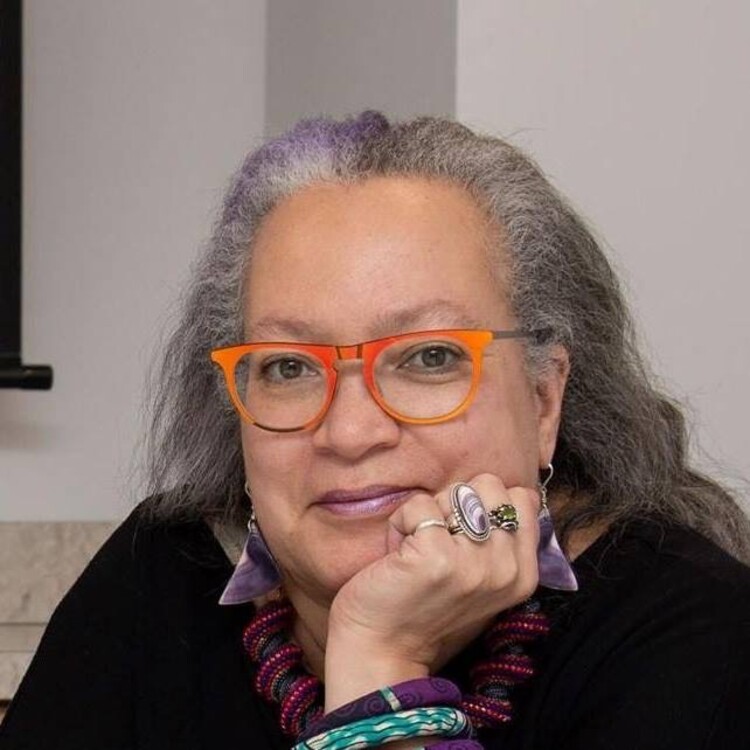
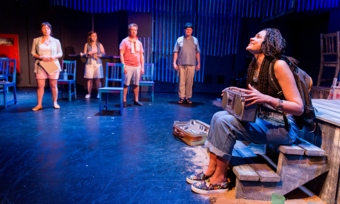



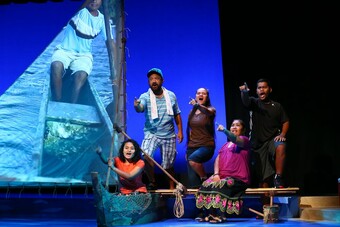

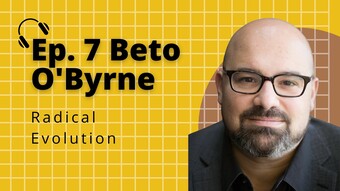


Comments
The article is just the start of the conversation—we want to know what you think about this subject, too! HowlRound is a space for knowledge-sharing, and we welcome spirited, thoughtful, and on-topic dialogue. Find our full comments policy here